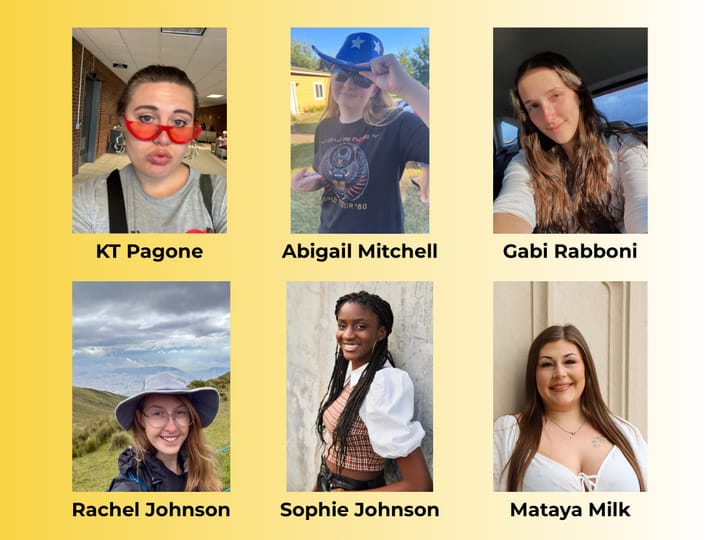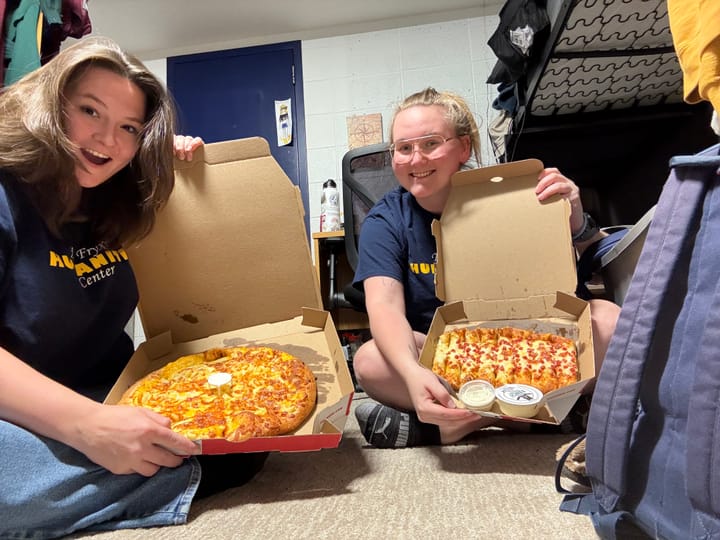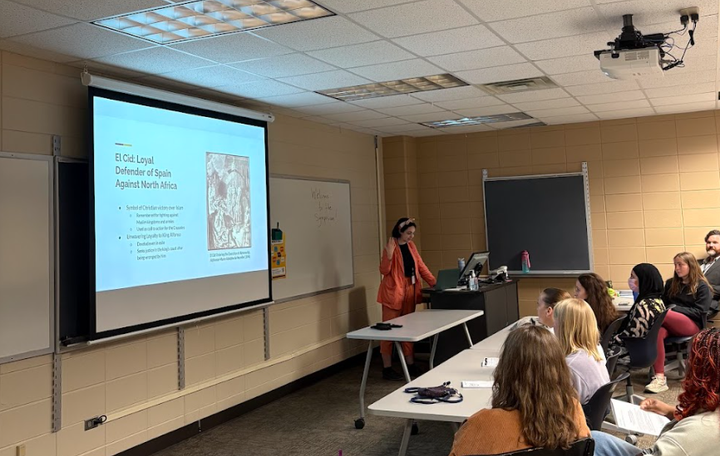Archeologist dumpster dives for sustainability
During the last days of school before summer starts, everyone wants to leave campus.
In their efforts to leave as fast as possible, students dispose of their unwanted food, furniture and clothing. But what students throw away in haste, Jason Kruse of the archaeology department dives for in the dumpster.
Last spring during move-out, Kruse noticed that while students filled the trash bins outside of Stavig Hall to the brim, the recycling bin right next to the trash bins was empty.
He decided to pull out all of the recyclable materials and move them to the recycling bin, taking his son Owen along for the journey. Seeing his son’s reaction to the amount of unnecessary garbage inspired a movement he’s been leading until now: Establishing a waste diversion program at Augustana.
Waste diversion doesn’t just mean recycling for Kruse. When looking at all of the unopened cans, furniture, electronics and clothes, he said,
“It’s hard to even express the dismay at how much waste there [is].”
Maggie Wiebelhaus, a junior at Augustana who worked on the project with Kruse every day this summer, said they found some jaw-dropping discoveries, like a perfectly good wooden xylophone and student art from the Humanities Division. They also found a 40 oz. jar of peanut butter with one spoonful gone in the Elmen Center dumpster.
“It seems like a weird thing to be fired up about, but I could not comprehend why someone would throw away food like that,” she said.
A lot of these items can go to the less fortunate and non-profits, and the ones that cannot may go to scrap yards. During Augustana’s last move-out period, Kruse saw hundreds of unopened feminine hygiene products go to the dumpster. But at places like Children’s Inn and The Compass Center, women in need will come into the shelters looking for pads and tampons.
Enacting this type of program takes people, and people are what Kruse needs. Jenna Baltzer, the assistant director of Campus Life, said she plans to team up with grassroots movements like Kruse’s to form a re-supply store.
In addition, Baltzer suggested increasing reusable and recycling education on campus, and Wiebelhaus recommended creating an intramural team or some sort of club that dedicates its activities to waste reduction.
For the moment, however, the movements across campus have been minute. Kruse and Wiebelhaus both said the phrase “dumpster diving” often deters people because of the connotations and social stigmas that the name suggests, so they don’t volunteer.
Kruse said Augustana is “decades behind” in comparison to other universities like Pennsylvania State and the University of Nebraska-Lincoln. His goal by dumpster diving is to “make it visible.”
“But now it’s just like some unfortunate soul who’s trying to find food or something,” Kruse said.
Nevertheless, Kruse refuses to back down. He believes that leaders need to lead by example, and he’s not afraid to get his hands dirty.
Although he may dumpster dive every day, it does not mean he wants to do it. His goal is to get students to take responsibility for the 80 percent of day-to-day waste that could be diverted.
Kruse said he plans to continue his efforts even in the winter. “It’ll be colder,” he said. “Just because it becomes a little harder doesn’t make it any less important.”
Wiebelhaus says through this experience she’s learned that “it takes more than just sitting in a boardroom and talking about the waste problems we have.”
“We have to take action and get things done,” she said. “We can’t just sit around and wait for the problems to go away.”



